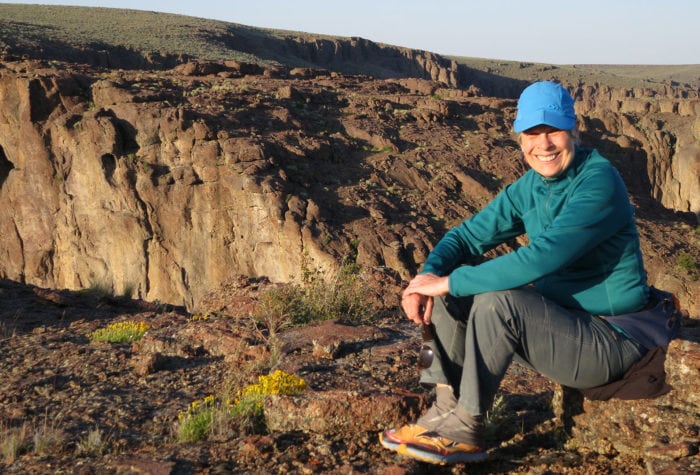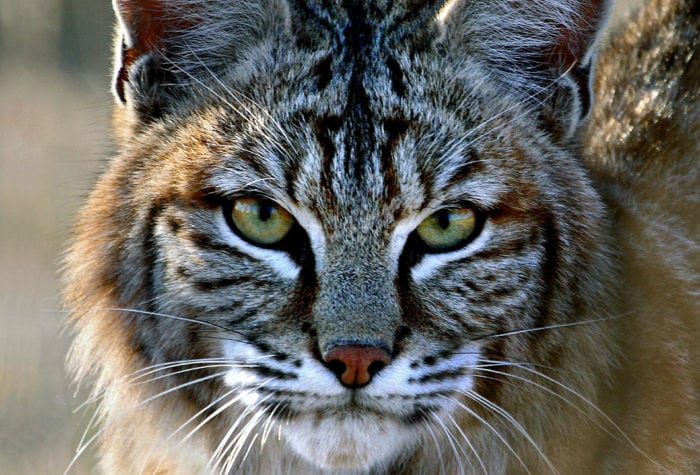Love ‘em or hate ‘em, there’s no denying that New Year’s resolutions are a thing.
In “8 Reasons We Really Do Need to Make Resolutions,” Dr. Theo Tsaousides concludes that goals keep people connected.
As he writes, “Common goals are the foundational block upon which we build communities. From families to sports teams, from small start-ups to large corporations, and from social movements to entire nations, the success of a group depends on how much its members believe in a common goal.”
At ONDA, our New Year’s Resolution is always the same: protect, defend and restore Oregon’s high desert for current and future generations.
As this calendar year comes to a close and you are re-centering your values and goals for the year ahead, here are five resolutions that will help you and help the desert.
Reconnect with the natural world.
You can feel it happening and there’s scientific research to back it up: spending time in a natural setting lowers your stress level, heart rate and blood pressure. It also makes you feel more trusting and generous.
Unfortunately, spending time out in nature is something we’ve doing less of as society, when we should be doing more. Studies by the EPA have found that the average American spends 90% of their time indoors. You can help buck that trend. Make more time to watch clouds drift over the desert in 2020. Prioritize a desert ramble. Schedule some sagebrush bathing – the high desert version of forest bathing.
Read more:
- What Happens When We Reconnect With Nature
- New study shows Americans’ deep appreciation for nature, barriers to connection
Exercise outside.
Want to feel happier? Less stressed out? Burn more calories? Take your workout on a walk. When you’re out in nature, you tend to worker harder, for longer, but also have more fun.
Read more:
Get started:
Help make the conservation community more inclusive.
The best way to protect everyone’s right to a healthy environment is to ensure that people of all identities can play a role in caring for healthy resilient landscapes. ONDA is putting more energy into building an inclusive desert conservation community, and we’ll need your assistance.
Dismantling systemic injustice is a long, long road, but there’s starting point that everyone can work from. You can examine and unlearn your biases and change your behaviors to be inclusive, rather than exclusive.
In the for-profit world, companies that are more diverse tend to be more innovative. We are excited to see how incorporating more diverse perspectives can help us implement creative solutions to the threats facing Oregon’s desert.
Read more:
- 10 Reasons Why Social Justice Is Important
- Environmental Groups Are Largely White. Here’s What Some Are — And Some Aren’t — Doing About It.
Get started:
Volunteer.
Nothing gives back like a day of giving back. If you want to lower your blood pressure and improve your mental health, volunteer.
Get started:
Speak up for the desert lands and waters you love.
2020 is going to be a hectic year and elected officials and policy makers will need to hear your voice to remember that healthy public lands are an important national priority. There are many ways to speak up. Oregon Senators Ron Wyden and Jeff Merkley regularly host town halls that you can attend. You can respond to news articles with a thoughtful letter to the editor. And, of course, ONDA will send out timely action alerts to let you know of key opportunities to use your voice.
Read more:
- Outdoor Alliance blog: Keep Fighting For Our Public Lands: A New Year’s Resolution
Get started:
As you work on being a more effective advocate for the public lands you love or spending more time out in the desert, know that you can look to ONDA for ideas, community and guidance.
And, thank you for the important role you play in conserving millions of acres of public lands in Oregon’s high desert to ensure that fish and wildlife thrive and wild places exist for all people to treasure and explore, now and always.
Here’s to an incredible 2020!

